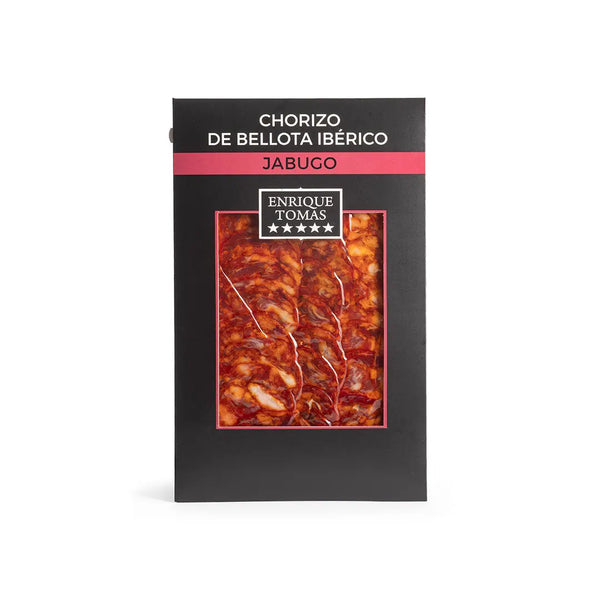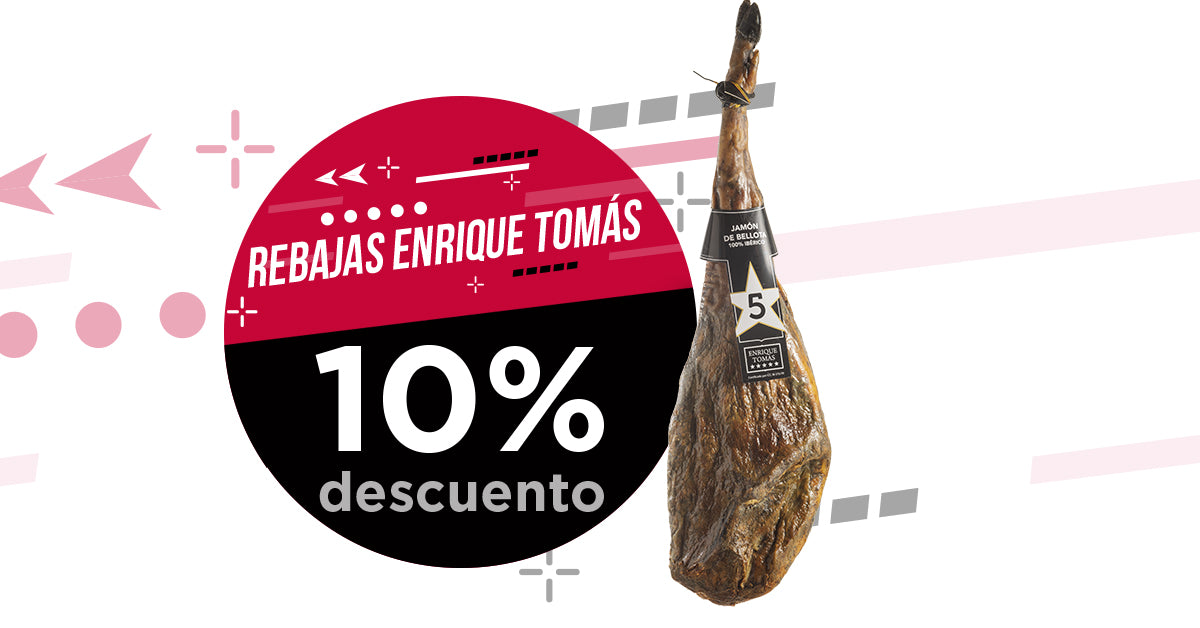
How to preserve the Iberian loin
Iberian hams are all those cured hams obtained from Iberian breed pigs, known for their ability to infiltrate fat into the muscle, elegant limbs, and generally a black hoof, although the latter physical trait is not always required.
But, What does "50% Iberian breed ham" mean? At Enrique Tomás, we are expert ham connoisseurs, so who better than us to explain it to you?
Let's get started!
What is a 50% Iberian Breed Ham?
For a ham or shoulder to be considered of Iberian breed, it must have been produced with meat from Iberian pigs. However, this doesn't mean that both parents of the pig need to be of this species. Only one Iberian parent is required for the descendant pig to also be Iberian.
Depending on the purity of the breed of the parents, three scenarios can arise:
- 50% Iberian breed: 50% ham comes from pigs with a single Iberian parent, usually the mother.
- 75% Iberian breed: The 75% ham comes from a mother that is 100% Iberian and another parent that is 50% Iberian.
- 100% Iberian breed: The ham is 100%, also known as "pata negra," when it comes from a pig whose father and mother are both 100% Iberian.
It's worth noting that the breed percentage of the pigs affects the flavor and juiciness of the meat, which has a more intense and succulent taste the higher the Iberian purity. However, one type of ham is not necessarily better than the others. Each type of Iberian ham has its own characteristics, and being more expensive doesn't necessarily mean it's better. It simply means that it required more dedication from the farmers and artisan masters to produce.
So, if you like intense and oily flavors, opt for 100% Iberian ham, while if you prefer delicate touches, the cebo ham is the best choice for you.
 The Iberian pig in the dehesa
The Iberian pig in the dehesa
Why is it called "pata negra ham"?
You've probably referred to Iberian ham as "pata negra" many times, but what's the reason behind this curious name? Since Iberian pigs tend to have black hooves, they are often called this, but you shouldn't focus on this particular trait because it's not always present. Some Iberian pigs do not have black hooves, and this doesn't mean they are not authentic. To visually determine if your ham is Iberian, you should look at the shape of its hooves, as those from the Iberian Peninsula are long and elegant. The color of the hoof is irrelevant.
Now that you know what "50% Iberian breed ham" means and that the meat and taste of the ham will be more or less intense depending on the origin of the pig's parents, consider this when choosing your ham. And remember, to distinguish a genuine Iberian ham, you don't need to focus on the color of the hoof; instead, look at the shape of the legs.
Look for Iberian hams with elegant, slender legs! or seek advice from your trusted butcher or a specialized ham store like ours.













